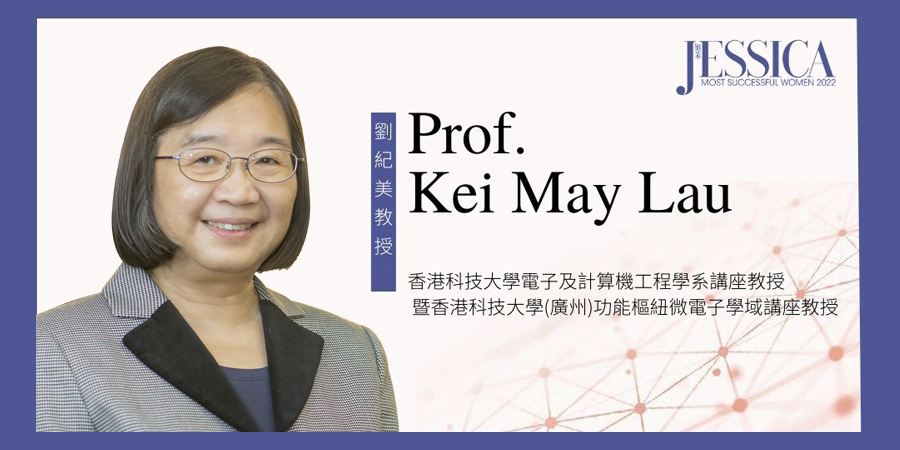Prof. Kei May LAU Selected as One of the Most Successful Women 2022 by Magazine 旭茉 JESSICA
Prof. Kei May LAU, Chair Professor of Electronic and Computer Engineering, was selected as one of the Most Successful Women 2022 by magazine 旭茉 JESSICA for her contributions to society and industry.
旭茉 JESSICA is a monthly glossy magazine launched in 2000 in Hong Kong, aiming to serve the needs of the city’s executive women in the new millennium. Its annual Most Successful Women Award honors women who have contributed to their respective industries, sectors, and the society of Hong Kong and Greater China. Each nominated woman was evaluated by the jury, and finally stood out as an awardee. The award recognizes Prof. Lau’s outstanding leadership, position, and presence, all of which have played an influential and significant role in our society.
Prof. Lau received her bachelor’s and master’s degrees in physics from the University of Minnesota, and a PhD degree in electrical engineering from Rice University. She joined HKUST in 2000 and established the Photonics Technology Center for R&D effort in III-V and wide band-gap semiconductor materials and devices. Prof. Lau is a Fellow of the Institute of Electrical and Electronics Engineers (IEEE), Optica, and the Hong Kong Academy of Engineering Sciences (HKAES). She is also a recipient of the IET J. J. Thomson Medal for Electronics (2020), Optica Nick Holonyak Jr. Award (2020), IEEE Photonics Society Aron Kressel Award (2017), US National Science Foundation (NSF) Faculty Award for Women Scientists and Engineers (1991), and Hong Kong Croucher Senior Research Fellowship (2008).
Related link:

